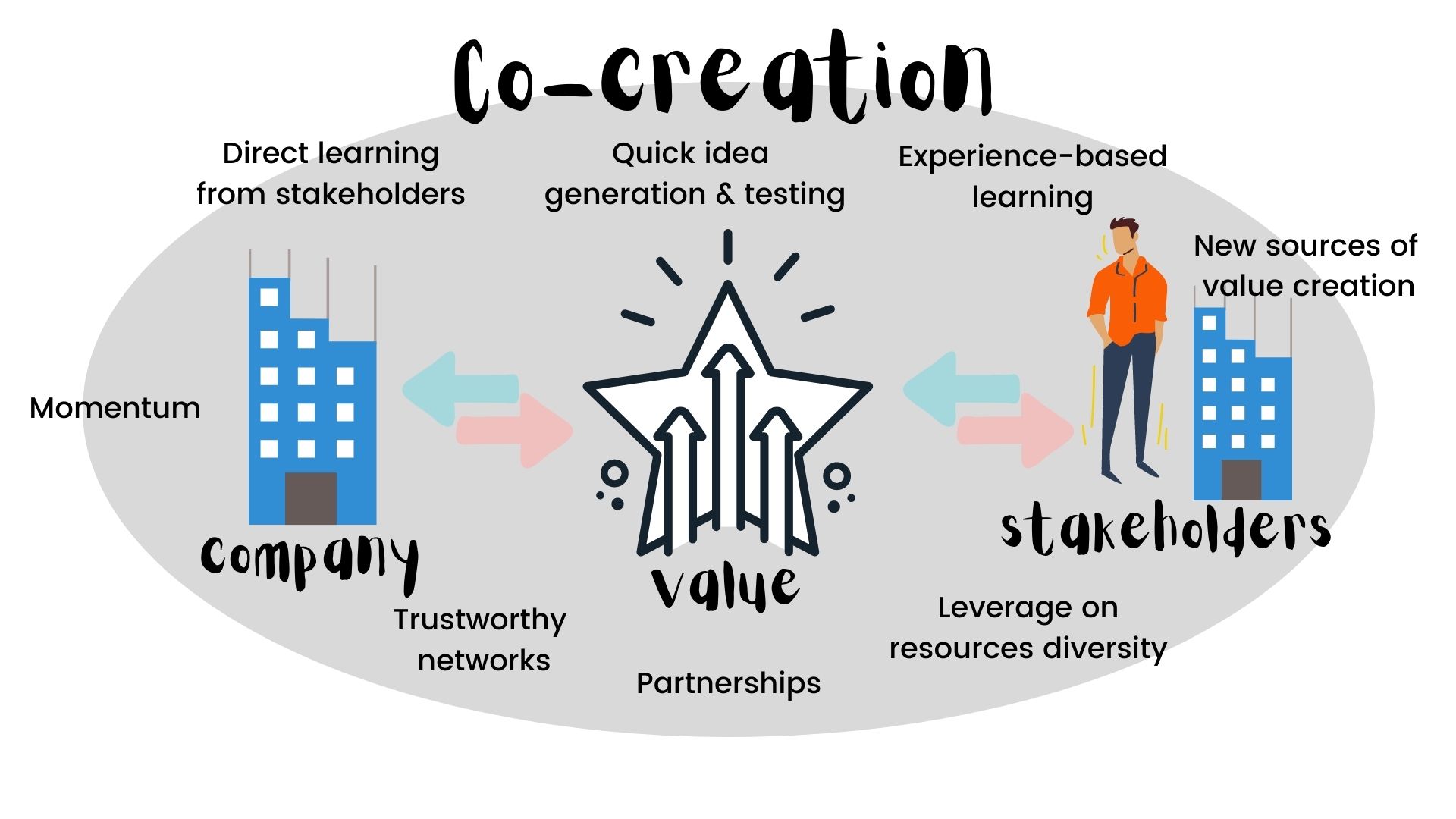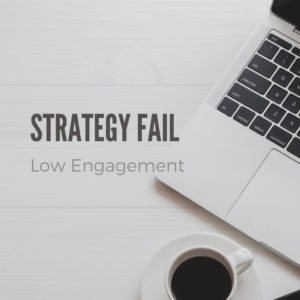- Posted on
- By cocreativs
- In Co-creation
Co-creation, what is it about?
The concept of value creation in business has been in constant transformation. Mainly because of the rapid evolution of information technologies and global communication. The easy access to knowledge has made the consumers more involved with the products or services they buy. This has boosted the democratization of value creation and the generation of new data. In other words, individuals are now more engaged in the value creation process, want to influence how they are going to be served, and are willing to give insights that lead to increase their perceived value. The perspective shifted from ‘product-centric’ to ‘consumer-centric’ or experience-centric’, which opened the path for co-creation. Many companies have implemented this concept successfully, but for others is still a very new topic. This is why we want to define the concept of “Co-creation” and to identify some of the benefits that could come when it is implemented.
Co-creation is the process of developing value (solutions, concepts, products, or services) in collaboration with stakeholding individuals (customers, suppliers, etc.) via engagement platforms, virtual ecosystems of capabilities, and facilitated experiences, with the ultimate goal of increasing wealth, welfare, and wellbeing. This means that ideas are shared and enhanced together, instead of held by a selected group of individuals.
There is being a change of perspective from organisations creating value to impact certain groups of individuals, to organisations interacting along with those individuals to generate greater value. It is a process of constant iteration that looks for scenarios where all the parties involved have positive outcomes (“win more – win more” situations). In co-creation, every stakeholder is considered a key piece of the pie. Stakeholders are the foundation for strategic resources and opportunities, such as specific knowledge and skills. This is why it is not a rigid structure but a path to navigate between the opportunities aiming to connect the right resources and spaces to create value.

So why to “co-create”? Enabling the transformation to this new point of view, directed towards the co-creation of value based on experience, generates a value that is unique for individuals, both personally and collectively. This generation of value through co-creation allows us to have global leverage of resources using interaction platforms. These connections exceed many limitations that we would find working from the individuality, seen not only from the person but also the organisation that isolates itself from its environment and the other entities that surround it.
Still, co-creation has some challenges. It may be a little difficult to open up and share important information with people who do not belong to your company. This can generate the perception of exposing yourself to unnecessary risks. Nevertheless, these meetings of minds generate new perspectives on business and innovative ideas that will guide the use of resources and knowledge in the right direction. Some of the benefits that we can expect from co-creation are:
- Build networks with deeper relationships and trust with the people involved.
- Foster partnerships between the academy, the private sector, the public sector, and the communities.
- Direct learning from the customers and other stakeholders.
- Direct information from sources based on their actual experiences and needs.
- Leverage on the different types of resources available on the network.
- Speed in ideas generation and testing.
- New sources of value creation and competitive advantages.
- Momentum creation where the progress of a component enhances the overall development.
Unfortunately, we cannot claim that co-creation is a fail-proof formula for successful innovations. What we firmly believe is that such a convergence enables new human capacities to be developed and human potential to be released. The power of co-creation impacts not only its participants but their environments. Co-creation sows new values in the world, in ways that we are just beginning to understand.





